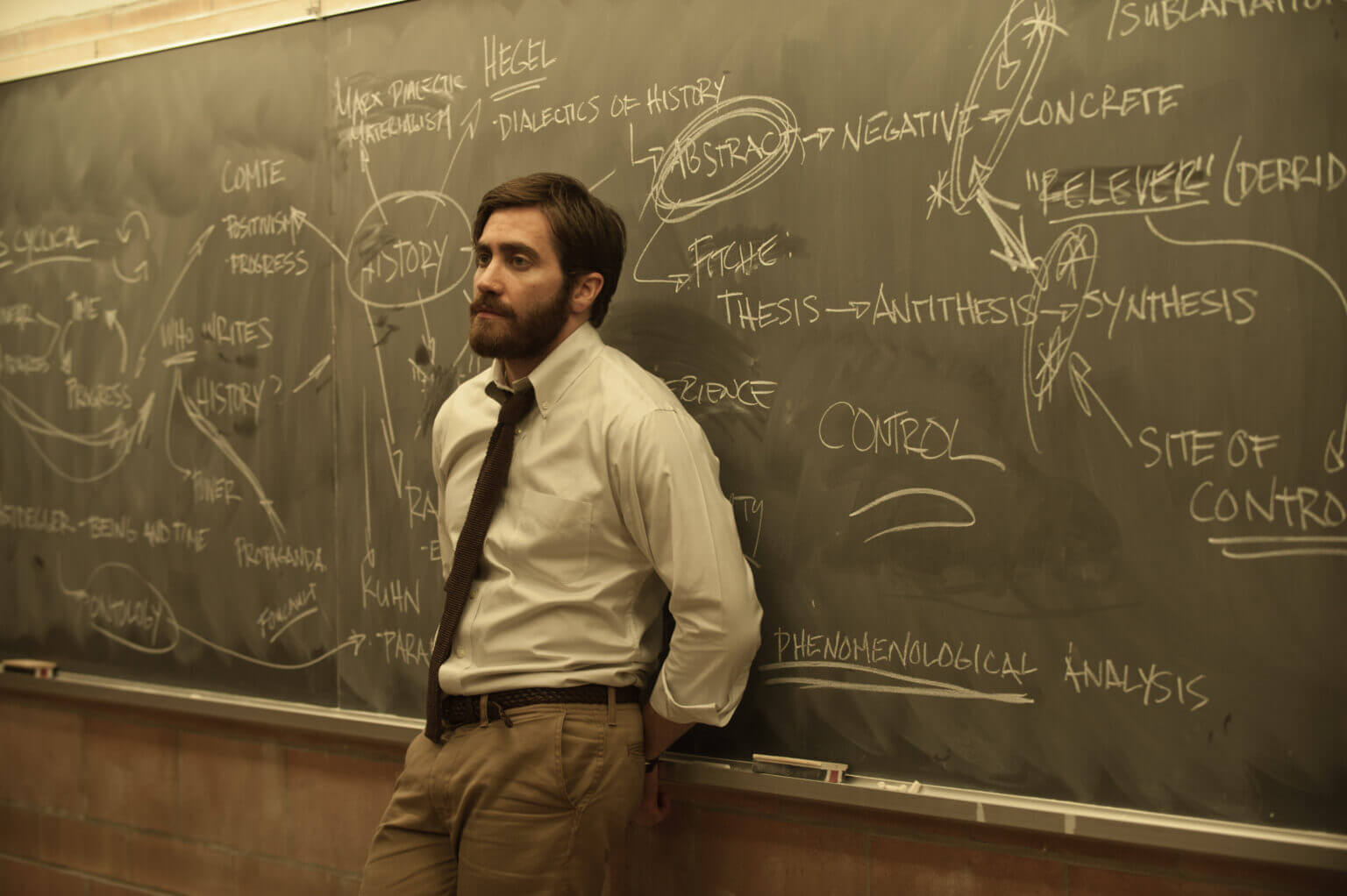ENEMY. Denis Villeneuve’s provocative thriller

Denis Villeneuve is a significant and attention-grabbing name, at least since the times of “Incendies.” In 2013, in the internationally acclaimed “Prisoners,” he revealed himself as a director capable of perfectly building the atmosphere of a thriller and playing with horror in quiet American neighborhoods for the nouveau riche. A year later, he showed the world “Enemy” – an incredibly peculiar film, seductive in atmosphere, and provocative in its meaning.
The very first shots immerse us in a tastefully surreal suspension between the metaphysical pursuit of one’s own life order of a madman, experienced by the main character. In “Enemy,” not only the atmosphere but also the entire plot is built on dark instincts and lurking misunderstandings within the recesses of humanity. Each subsequent scene denies the existence of logic and leaves room for the director’s impressions about the soul inhabiting the apartments of an anonymous city man with a beard (a noteworthy portrayal by Jake Gyllenhaal).
While in “Prisoners,” one could feel the efficiently maintained horror from the very beginning, now the director leaves us perplexed: no one can determine with certainty whether a surrealist tragicomedy or something equally challenging and significant as the twins in “Incendies” will emerge from this delicately grotesque world. The chaos referred to in the film’s motto seems to be one of the biggest strengths of the movie – Villeneuve is fully aware of it; with a light touch, he bends and distorts the reality of his work, throws hints, and then abruptly changes direction.

The plot is based on the story of an academic teacher whose life is transformed by a movie screening. Adam’s previous, dull conduct balanced between the drawn scheme of order and chaos on the board, explaining Hegelian principles of history and spectacularly mishandling relationships with his girlfriend. Everything turns upside down when he recognizes himself in one of the movie roles. The search begins, and psychological disturbances take over in Villeneuve’s cosmic space, where between scenes of passionate sex, tedious sitting on a bench, and inserts from the recently fashionable schizophrenic narration, the director ironically places an equal sign. This cinema initiated the search and awakened Adam, but further clues did not lead the hero into a fairy-tale reality of the Tenth Muse; instead, they were scattered in the world presented to us during the first few minutes. He managed to confuse and promise countless Lynchian layers, which the director, however, failed to delve into – the plot of “Enemy” will flow to the very end on the sticky and increasingly tedious surface.
The search in “Enemy” is not as intricate and lengthy as in “Prisoners” or “Incendies.” The men find themselves quickly and discover that despite identical bodies, they differ in many ways. The initial horror and pleasure of the announced pursuit of the self give way to considerations of whether we have a situation here similar to Fight Club, whether these two played by one actor are not one, split self-organism. They meet, talk, even swap into women, but as quickly as they found each other, it turns out there is no chemistry between them, just as there is none between the script and the direction. Among all the doubts surrounding “Enemy,” this is the most unpleasant and poignant fact because if the script matched Villeneuve’s ability to saturate viewers with disturbing atmosphere and unexpected charges in the poetics of a solid thriller or action cinema, arranging interpretative puzzle pieces would be much more interesting. After all, it is easier to accept banality than to listen to an awkward essay on desire, in which “Enemy” transforms towards the end.

The first 20 minutes make “Enemy” a painful film for me. First, the viewer is rocked by a unreal, dense atmosphere, gets a preview of a psychedelic charge after the passions of the Tenth Muse, and in the back of their mind, holds the thought that Villeneuve can introduce his story into the twists of a brilliant thriller. All in vain, because in the end, it turns out that the intellectual pretensions of the script diverge from the directorial skill. The initially ambiguous aura of the film turns into the fatigue of a work wanting to emanate metaphysical unease, and the point pretending depth remains as the conclusion from all the hopes accompanying the beginning of the screening. It’s a pity because I really wanted to fall in love…

